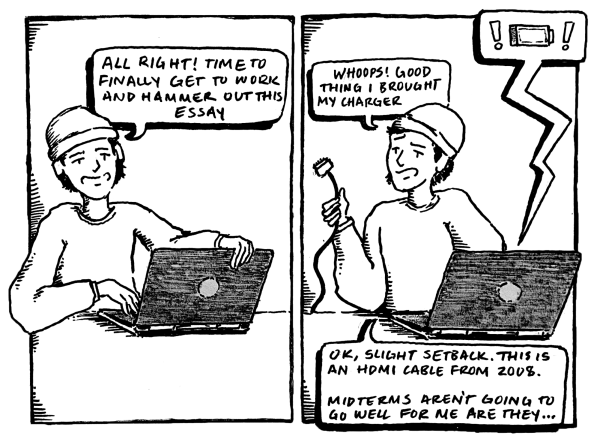Ohio’s “Don’t Say Gay” Bill Highlights Ideological Tensions
Earlier this month, Ohio Republican representatives Mike Loychik and Jean Schmidt introduced House Bill 616, broadly known as Ohio’s own version of Florida’s “Don’t Say Gay” law. The bill would ban “any curriculum or instructional materials on sexual orientation or gender identity” as well as scholastic material “that promotes any divisive or inherently racist concept,” including “Critical race theory, Intersectional theory, the 1619 project, diversity, equity, and inclusion learning outcomes, and inherited racial guilt.” This move follows in the steps of a series of anti-LGBTQ+ educational legislation being introduced in states across the country.
Like most legislative responses to the culture war, Bill 616 is an expression of fear and a feeling of loss of control. Given the historical assumption that the American education system would cater to an American sensibility — a conservative American sensibility — the notion that students might be asked to consider the flaws of their country is deeply disturbing and threatening.
In a statement regarding the bill, Schmidt argued that “parents deserve and should be provided a say in what is taught to their children in schools. The intent of this bill is to provide them with the tools to be able to see what their child is being taught.” Obviously, I disagree with this. Not just because I believe the intent of this bill has more to do with censorship than transparency, but also because I do not believe that “parents deserve and should be provided a say in what is taught to their children in schools.” In fact, I believe that this sentiment completely negates one of the primary functions of education: progress.
The Monday after spring break, I went into Cleveland with a couple of friends to see a talk by author Fran Lebowitz. During the Q&A session, someone asked her about her opinion on the growing number of “Don’t Say Gay” bills being introduced around the country. In response, she recounted a story from her life as a teenager growing up in the ’60s. She told us that she had a high school English teacher who assigned her class The Picture Of Dorian Gray by Oscar Wilde. She read the book in one sitting that night, only to come to school the next day to find that the teacher had been fired for his choice of curriculum. She said that there was no question that the school had fired him because he chose to teach Wilde and was consequently assumed to be gay. On one hand, her story made me consider the extent of the progress that has been made in less than a century, and on the other, it made me realize how much we have to lose. If there’s one thing I hope will result from this wave of anti-LGBTQ+ legislation, it’s that young people will see how dangerous it can be to take progress for granted.
I would, however, like to consider at least one comforting thought. I believe the very fact that these bills are being put forward across the country means that there already exists a cultural force to push back against. Bill 616 is an expression of fearful ignorance. The fact that legislators feel that their ideology needs to be put into law in order to take effect in society means that we are witnessing a culture attempting to resist the ideology of bigotry. This isn’t to say that bills like 616 aren’t cause for concern — on the contrary, what we face now is the beginning of a battle against right-wing propaganda and its followers.
Luckily, there are plenty of people already fighting the good fight. An ABC News/Ipsos poll found that “more than 6 in 10 Americans oppose legislation that would prohibit classroom lessons about sexual orientation or gender identity in elementary school.” And although the term ‘critical race theory’ has proven itself to be a deeply unpopular one outside of a solidly left-leaning group of Americans, 75 percent of us approve of “teaching ‘the history of racism’ in public schools,” including 54 percent of Republicans, according to a Monmouth University poll. When I say that we shouldn’t take progress for granted, this is the progress I’m optimistic about — the progress that we should all have in the back of our minds when we are tempted to see politics entirely through a haze of despair and division.
It’s telling that when presented with concepts like “teaching racism” rather than “teaching critical race theory,” public opinion starts to shift. Unfortunately, I think that there’s a common sentiment on the left, especially one that I often see expressed amongst people of my age group, that if people are unable to look past the technicalities of language, they aren’t worth inviting into the cause.
When considering how to advise Oberlin students specifically on this issue, I found myself thinking principally of language. I don’t want to end on a self-evident message such as “vote blue.” Instead, I’d do better to remind you to express your political opinions as beliefs rather than slogans. A fundamental conviction I have about politics is that about 90 percent of the decisions made in poll booths are directly related to the desire to protect one’s money and one’s children. In this case, people really just want the best for their kids. So the next time you find yourself talking to someone who agrees with Mike Loychik or Jean Schmidt, think of them as someone misguidedly trying to protect something defective rather than attacking something just.


